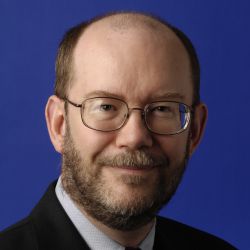
Normal 0 false false false false EN-US X-NONE X-NONE
This week is the annual gathering of the supercomputing faithful at SC11, held this year in Seattle. Jointly sponsored by ACM and IEEE, the conference attracts roughly ten thousand attendees. Only a handful of U.S. sites can now host it due to the space requirements for the technical program and the trade show. Unless the Washington State Convention Center expands, this will be the last time Seattle will host the conference.
This is the 24th year of the conference and my 21st year of attendance. I look forward to it eagerly each time. For many of us, the conference is a chance to see old friends, track the global competition of the world’s fastest machines via the Top500 list, discuss the latest hardware and software, and explore the applications of supercomputing to complex problems. To use a technically relevant analogy, my mean free path before encountering someone and stopping for conversation is often no more than ten meters. That is both wonderfully stimulating and, by week’s end, exhausting.
SC11 Cray, Fernbach and Kennedy Awards
For the third year in a row, I had the honor and privilege to chair the selection committee for the IEEE Seymour Cray and Sidney Fernbach awards, both of which are being presented at SC11. These eponymously named awards recognize truly outstanding contributions to high-performance computing, in honor of two early leaders of our field. The Seymour Cray award recognizes individuals whose innovative contributions to high performance computing systems best exemplify the creative spirit demonstrated by Seymour Cray. In turn, the Sidney Fernbach award is given to for outstanding contribution in the application of high-performance computers using innovative approaches.
In addition to chairing the Cray and Fernbach award selection committee, I also had the privilege to be a member of the selection committee for the ACM-IEEE Ken Kennedy Award. The Kennedy award recognizes the contributions to programmability and productivity and community service and mentoring. The Kennedy award will also be presented at SC11.
Cray and Fernbach Award Presentation
I am looking forward to the Wednesday (November 16th) session, were we will present all three awards. The 2011 Seymour Cray Award will be presented to Dr. Charles (Chuck) Seitz. Not only did Chuck and his colleagues stimulate a revolution in distributed memory supercomputing design with the Cosmic Cube, he developed the message passing techniques and hardware that have connected some of the world’s fastest machines, including the Intel Paragon, ASCI Red and the Cray T3D/E. Chuck also led the team that founded Myricom, which developed the Myrinet interconnect.
I was equally pleased that we will present the 2011 Sidney Fernbach Award to Dr. Cleve Moler for his seminal contributions to linear algebra, mathematical software, and enabling tools for computational science. Cleve co-authored the widely used LINPACK and EISPACK scientific subroutine libraries, which are used a wide range of computational science applications. In addition, Cleve is the chief mathematician for MathWorks, the company he co-founded to commercialize MATLAB, perhaps the most widely used toolkit in all of science and engineering.
Finally, I am thrilled that the Ken Kennedy award will be presented to Professor Susan Graham, in recognition of her foundational compilation algorithms and programming tools, research and discipline leadership, and exceptional mentoring. Sue has made seminal contributions to programming software, as part of the UC-Berkeley UNIX project and other collaborations. If you have used a program performance profiler, such as gprof, you are the beneficiary of her work. As anyone who has worked with her knows, she has also mentored generations of students.
The three awards and the work of the recipients reflect the evolving interplay of technology, software, applications and algorithms in advancing high-performance computing. They also recognize intellectual leadership and mentoring of a new generation of high-performance computing talent. This interplay of technology and mentorship has continued to enable innovative scientific research and engineering practice, the vanguard of computational science and engineering.
Committee Acknowledgment
I would be remiss if I did not acknowledge the insights, perspectives and thoughtful evaluations of the Cray and Fernbach Awards Committee:
Normal 0 false false false EN-US X-NONE X-NONE- Doug Burger, Microsoft
- Bill Dally, Stanford and NVIDIA
- Jim Demmel, University of California at Berkeley
- Jack Dongarra, University of Tennessee and Oak Ridge National Laboratory
- Bill Gropp, University of Illinois at Urbana-Champaign
- Mary Hall, University of Utah
- Bob Lucas, USC Information Sciences Institute
- Satoshi Matsuoka, Tokyo Institute of Technology
- Paul Messina, Argonne National Laboratory
- Wolfgang Nagel, Technical University of Dresden
- Vivek Sarkar, Rice University
- Horst Simon, Lawrence Berkeley National Laboratory
- Andy White, Los Alamos National Laboratory
On behalf of the committee, I also want to express my deepest thanks to Anne Marie Kelly from the IEEE Computer Society.



Join the Discussion (0)
Become a Member or Sign In to Post a Comment